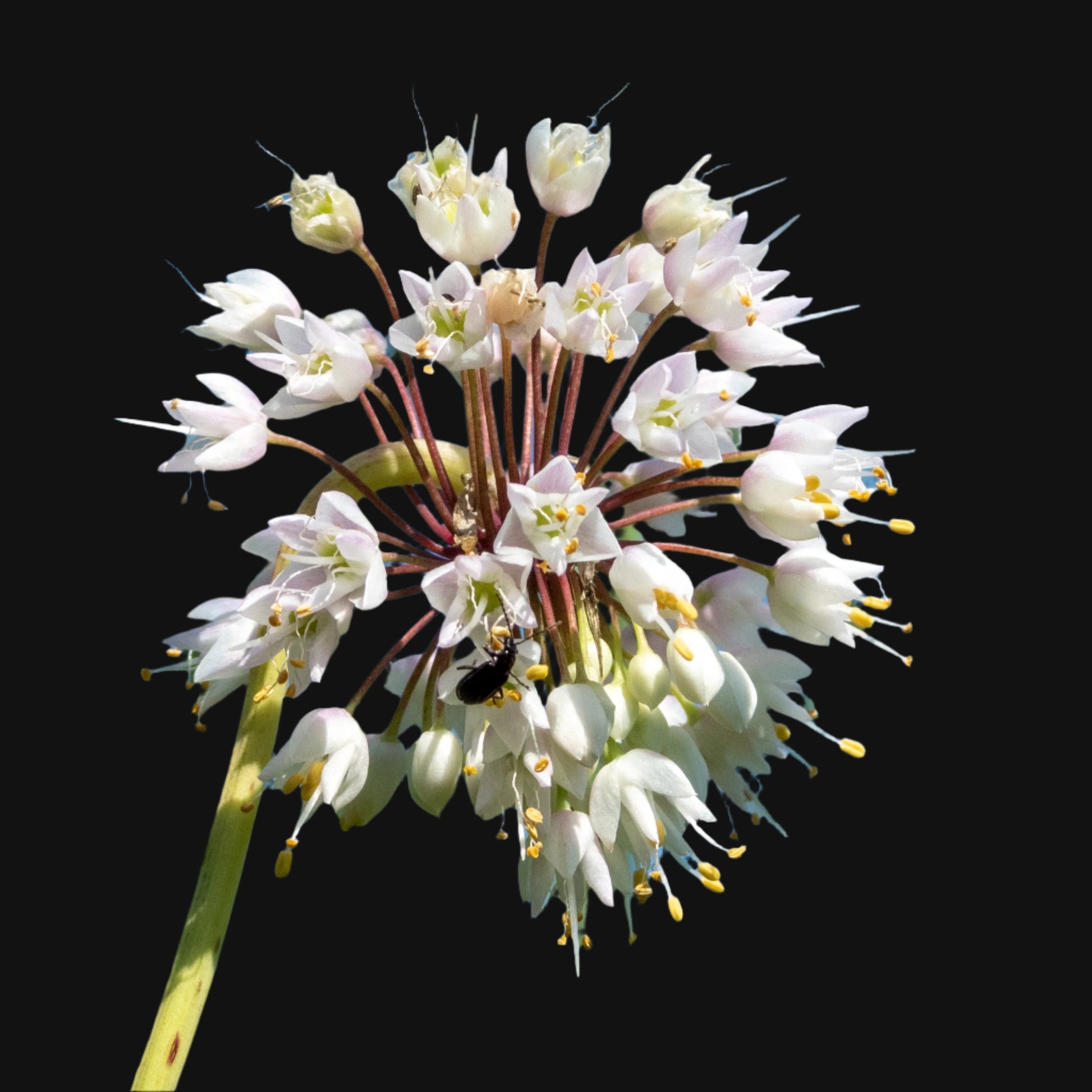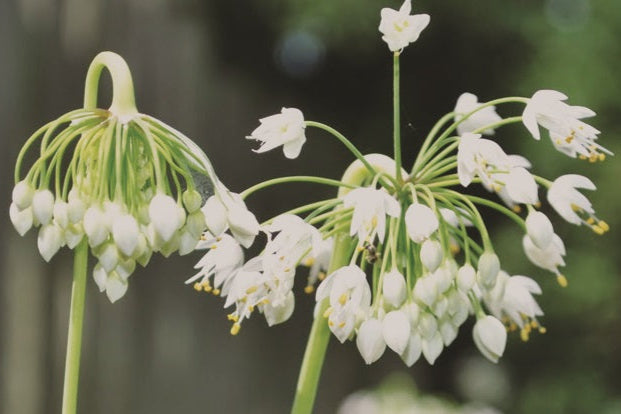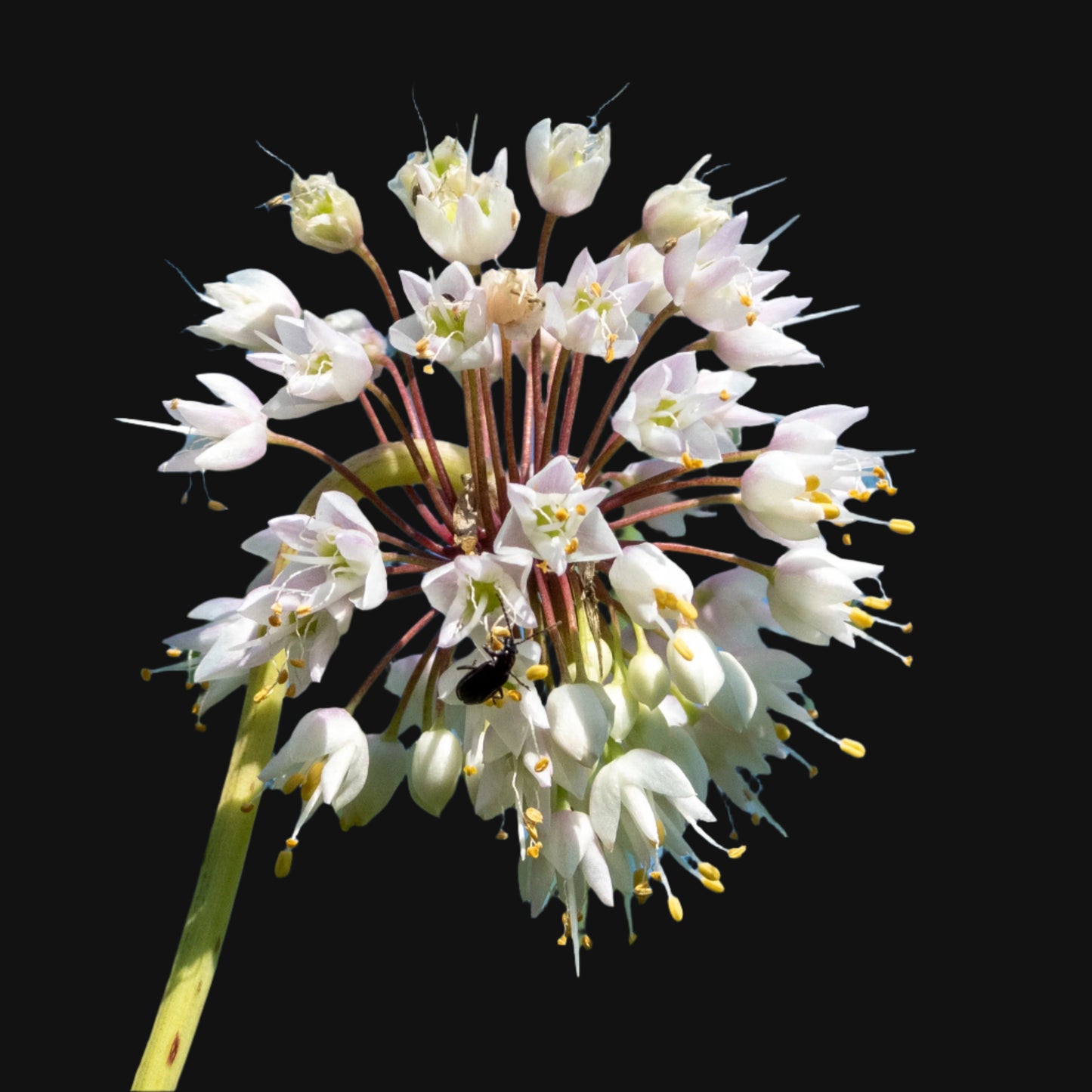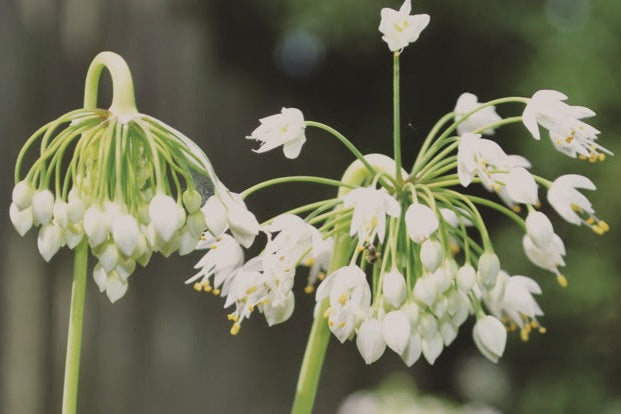Seed the Change!
Seeds of Diversity Canada estimates that nearly 75% of vegetable varieties have disappeared. 25% of native plants are at risk and diversity in flower gardens is shrinking.
We are working to restore the biodiversity that was once common in gardens, farms, and nature around Canada!
Nodding Onion
Nodding Onion
Allium cernuum
Out of stock
Height 0.3–0.6m (12–24in) Spread 0.2–0.4m (8–16in)
- Weight: 5g / 0.17oz
- Product Count: 40
- Growing Difficulty: Easy
- We ship Wednesdays !
Couldn't load pickup availability
All our seeds are 100% Canadian Grown, Processed-by-Hand, Non-GMO, Certified Organic, and Open Pollinated. From our 10-acre Seed Farm in Metchosin, BC since 2004.
Quick Notes
- Native perennial in the Allium family
- Edible leaves, bulbs, and flowers with mild onion flavour
- Delicate pale pink to white nodding blooms
- Naturalizes quickly and is easy to divide
- Excellent for pollinators and low-maintenance gardens
About Nodding Onion
Nodding Onion is a graceful and hardy native perennial that adds charm to any garden. It produces slender, upright leaves and a single stem that curves downward to reveal pale pink to white bell-shaped flowers that appear to “nod” in the summer breeze. Beloved by bees and other pollinators, this ornamental and edible plant thrives in a range of growing conditions and spreads gradually to form beautiful clumps. Its subtle onion flavour makes it a useful addition to the culinary garden, while its soft appearance is well-suited to borders, wildflower patches, and rock gardens.
Where Can You Grow Nodding Onion?
Ideal for Zones 3–9, this adaptable perennial does well in full sun to partial shade and prefers well-drained soil. Once established, it is drought-tolerant and an excellent candidate for naturalising in low-maintenance gardens, pollinator pathways, and native plant landscapes.
History and Historical Uses
A traditional food and medicine for First Nations communities along the Pacific coast and across North America, nodding onion (Allium cernuum) was valued for its edible bulbs, leaves, and flowers. Used in cooking for its mild, sweet onion flavour, it was also cultivated as a health-supportive plant and garden ornamental. Its historical role in Indigenous food systems makes it an important species to restore and honour through cultivation.
Canadian Zone Information
Zones 8–9: Plant in fall or early spring; clumps will flower in early to mid summer.
Zones 5–7: Best planted in spring or fall; mulch in colder areas for winter protection.
Zones 3–4: Hardy with mulch; plant in spring and allow clumps to naturalize.

How to Grow and Harvest Nodding Onion
Planting: Sow seeds 6mm (¼in) deep or transplant root clumps 10cm (4in) apart.
Watering: Water regularly in the first year; drought tolerant after establishment.
Harvesting: Use leaves fresh like chives; flowers are edible and bulbs can be lifted in autumn.
Maintenance: Divide clumps every 3–4 years for continued vigour and spread.
Seed Saving Tips for Future Supply
Let Flowers Mature: Allow blooms to form seed heads and dry on the plant.
Collect Seeds: Gently shake or snip seed heads once they turn brown and dry.
Dry and Store: Spread seeds to dry for several days, then store airtight.
Store: Keep cool and dry; seeds stay viable for 2–3 years.
Certified Organic By
Islands Organics Producers Association (Cert#1962)




